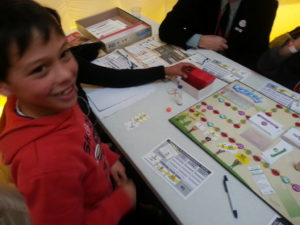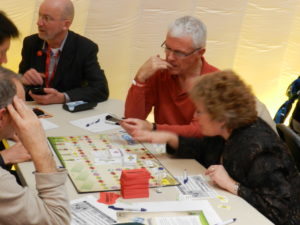It doesn’t take a genius to work out that a workforce, team or any other group of people will perform better when it is motivated. But how do you go about motivating people? In the world of motivation there is a theory that unpicks how to get the most from your workers, volunteers or members called the “Hygiene-Motivation Theory” developed by Fredrick Herzberg and published in “The Motivation to Work” in 1959.
The crux of this theory is that there are the factors which satisfy people in the work place and others that dissatisfy them. Motivation occurs where there is satisfaction and demotivation occurs where dissatisfaction prevails. However, contrary to what you might expect, what motivates people at work is not just the opposite of what causes dissatisfaction.
Hygiene factors must be met in order for people to stop being dissatisfied, but halting dissatisfaction does not itself provide satisfaction. This involves extra activity. If you like, the hygiene factors are the foundations upon which motivation can be built. Meeting basic hygiene needs provides only momentary satisfaction – in much the same way that finding a deserted building as shelter on a rainswept moor would provide momentary relief: you would not want to live there! Satisfaction, and sustained motivation, comes from meeting separate motivation factors. But, failure to address hygiene factors makes any work on motivation factors a waste of time and energy.
Herzberg identified typical examples of these factors which we can take as a starting point, but it may be possible to identify specific factors in your organisation which have either a motivational or demotivational effect on members:

There is a useful introduction to Herzberg’s theory on the BusinessBalls website: http://www.businessballs.com/herzberg.htm
How can we apply this theory in our co-operatives?
A first step would be to get members talking so the co-operative can establish how they feel about these issues. One person’s idea of status may not be the same as another’s, and what is for one person an adequate salary (or total pay if you include profit share) may not be enough for another. Desirable terms and conditions can vary between people with different circumstances e.g. the parent might rather be able to work flexibly around school start & finish times whereas the hardened festival goer may want to take the bulk of their holiday in the summer. What does achievement mean to your members? At what point for individuals does responsibility provide motivation and at what point does it constitute unnecessary pressure? Do they want individual responsibility or shared responsibility?
What does this have to do with co-operative skills?
To benefit from this motivational theory, your co-operative might look at management decisions and organisational changes. However improving co-operative skills will address some of these motivational factors at a fundamental level:
- Developing good communication skills and learning how to deal with conflict helps people to maintain relationships for longer (a hygiene factor).
- Improved efficiency and effectiveness of the organisation through better meetings can generate better conditions, remuneration and job security – each of them an acknowledged hygiene factor.
- Recognition of status as an equal in the business is an important hygiene factor in co-operatives. Poor co-operative skills such as bad communication can undermine the status of a member. If some members feel their views are not heard or taken on board they may feel they do not have equal status – despite what the governing document says about one member one vote. Behaviours that have developed over years and some policies, procedures or systems can also contribute to this .
- Direct influence on company policies (a hygiene factor) and the way work itself is organised (a motivation factor) are more likely if your organisation adopts good decision making processes that take into account all members – not just the majority or the most vocal.
- Well organised meetings encourage individuals to share responsibility (motivation) giving all members opportunities to gain recognition as important joint players in the organisation (motivation)
- Training in co-operative skills is motivational as it provides advancement and personal growth.
- A co-operative that functions well is a less stressful, more supportive place to work.
It is worth looking at the free resources on the Co-operantics website to develop the co-operative skills in your organisation, or you can bring us in to help.
We can also assist you to identify factors that can assist motivation or advise on improvements to your governance structure, policies and procedures.
Email us at nathan@cooperantics.co.uk

 We were delighted to have the opportunity to play and promote the game of Co-opoly at the Co-ops United event in Manchester on Thursday 1st November. We managed to set up four games running concurrently and came away totally vindicated in our belief that Co-opoly is an excellent tool for learning about co-operatives and especially what it’s like to work in one.
We were delighted to have the opportunity to play and promote the game of Co-opoly at the Co-ops United event in Manchester on Thursday 1st November. We managed to set up four games running concurrently and came away totally vindicated in our belief that Co-opoly is an excellent tool for learning about co-operatives and especially what it’s like to work in one.


